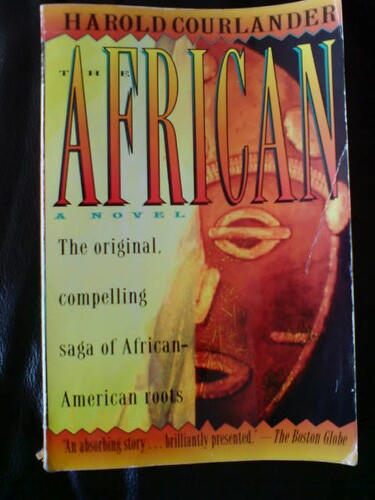

When he was ten years old, Courlander was sent to an "open air school" in order to recover from a chronic illness. Yet Courlander remained captivated by stories he heard. A few years later, when his father became bedridden with a severe bout of rheumatoid arthritis, he would gather his children to his side and spin tales that kept them entertained for hours. Courlander became fascinated by the stories his black friends knew and shared with him. In her biography of Courlander targeted for the young adult audience, A Voice for the People, author Nina Jaffe noted that among Courlander's classmates in his Detroit neighborhood, there was not only the expected melting pot of European immigrants, but also "the children of black families who had migrated from the farms and small towns of the Deep South." They all came to Detroit in search of the American dream of a better life in the steel and auto factories. The family started over again, with a move to Detroit, Michigan when Courlander was five years old. But in 1913, he took on his brother-in-law as a partner, and his business began to fail. His father's hard work led to a successful tailoring business. Courlander was the youngest of three children, having two older sisters, Bertha and Adelaide. His mother had been born in England, where her Russian-born parents had lived briefly. His father's family arrived in America byġ840. Both families were of European Jewish origin. His parents were David Courlander and Tillie Oppenheim. Harold Courlander was born in Indianapolis, Indiana, on September 18, 1908. For a brief time, Courlander's name was noted outside the small circle who had always been familiar with his work. Haley's reputation was damaged, while the integrity of Courlander was maintained. He expressed his regret to Courlander, and made a financial settlement. After six weeks of testimony, Haley offered to settle the case. The lawsuit made headlines throughout the United States during the summer and fall of 1978.

Haley argued that the story was exclusively that of his own family's rise from slavery in America. What connected the two stories, and the two men, was the court case that occurred when Courlander brought suit against Haley.Ĭourlander claimed that plots in Haley's Roots were directly lifted from The African. It was developed into the most popular television mini-series of the 1970s. Many people were more familiar with the author Alex Haley's book, Roots, published in 1978. In 1967, Harold Courlander published a novel called, The African. By preserving the history of Native Americans, as well as Asians, Indians, and countless African tribes, his work became crucial to an understanding of the paths traveled by world civilization. American folklorist Harold Courlander (1908-1996) was not a familiar name to most people during his lifetime.


 0 kommentar(er)
0 kommentar(er)
